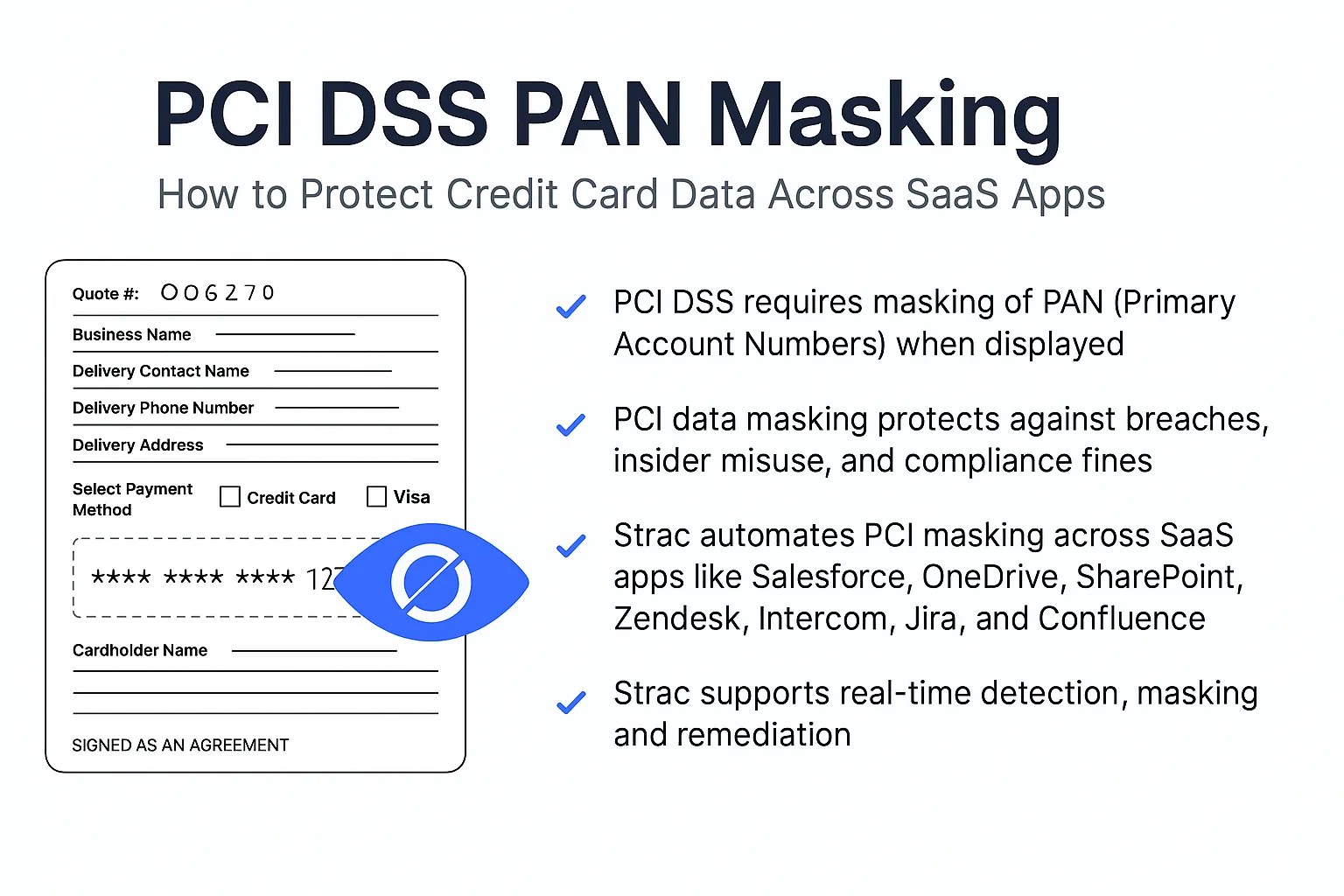TL;DR:
- AI assistants like MS Copilot and ChatGPT offer productivity gains but also pose data security risks.
- Copilot DLP is crucial for safeguarding sensitive data from exposure and compliance breaches.
- Implementing Copilot DLP involves strategies like input filtering, output monitoring, and access controls.
- Strac CoPilot DLP integration offers real-time monitoring, customizable policies, and compliance management.
- Organizations should develop clear policies, educate employees, and collaborate with IT and security teams to maximize the benefits of AI assistants while minimizing risks.
In today's fast-paced digital landscape, AI assistants like GitHub Copilot and ChatGPT have revolutionized the way we work, offering unprecedented levels of productivity and efficiency. These tools leverage machine learning to provide intelligent suggestions, automate routine tasks, and enhance decision-making processes. However, with great power comes great responsibility. As organizations increasingly rely on AI assistants, the risk of sensitive data exposure and compliance breaches escalates. This is where Copilot Data Loss Prevention (DLP) comes into play—a crucial strategy to safeguard your organization's most valuable asset: its data.
The Rise of AI Assistants and Associated Risks with Copilot DLP
AI assistants have become indispensable in various domains:
- Software Development: GitHub Copilot assists developers by suggesting code snippets and functions.
- Customer Service: Chatbots handle customer inquiries, providing instant support.
- Content Creation: Tools like ChatGPT generate human-like text for blogs, reports, and more.
While these assistants offer significant benefits, they also introduce new vulnerabilities:
- Data Leakage: AI models trained on vast datasets may inadvertently expose sensitive information.
- Compliance Violations: Sharing confidential data with AI tools can breach regulations like GDPR, HIPAA, or CCPA.
- Intellectual Property Risks: Proprietary code or business strategies could be unintentionally disclosed.
Notable Incidents
- Samsung Data Leak (2023): Employees inadvertently shared sensitive code with an AI assistant, leading to a potential breach of intellectual property.
- Healthcare Data Exposure: Misuse of AI tools led to the accidental sharing of patient information, violating HIPAA regulations.
Understanding Data Loss Prevention (DLP)
Data Loss Prevention (DLP) refers to strategies and tools designed to prevent unauthorized access, misuse, or exfiltration of sensitive data. DLP solutions monitor and control data flows across an organization, ensuring compliance with regulatory requirements and internal policies.
Key Components of DLP
- Data Identification: Classifying data based on sensitivity and regulatory requirements.
- Monitoring: Tracking data in motion, at rest, and in use.
- Policy Enforcement: Applying rules to prevent unauthorized data actions like Alert (Warn), Block, Redact, Pseudonymize
- Incident Response: Providing alerts and remediation steps for potential breaches.
The Necessity of Copilot DLP
As AI assistants become integral to business operations, integrating DLP into these tools is essential.
Why Traditional DLP Isn't Enough
- AI Interactions are Complex: AI models process and generate data in ways traditional DLP solutions may not detect.
- Real-Time Data Exchange: AI assistants often require real-time access to data, increasing the risk of instant leaks.
- User Behavior: Employees might unknowingly input sensitive information into AI tools.
Benefits of Copilot DLP
- Enhanced Security: Protects against inadvertent data exposure through AI assistants.
- Regulatory Compliance: Ensures that interactions with AI tools adhere to legal standards.
- User Awareness: Educates employees on safe AI usage practices.
Implementing Copilot DLP: Solutions and Strategies
Implementing Copilot DLP involves integrating DLP capabilities directly into AI assistants or their workflows.
Strategies
- Input Filtering: Scanning data before it's processed by the AI assistant to prevent sensitive information from being input.
- Output Monitoring: Analyzing the AI's responses for potential data leaks before presenting them to the user.
- Access Controls: Restricting who can use AI assistants and what data they can access.
- Encryption: Ensuring data transmitted to and from AI assistants is encrypted.
Technological Solutions
- API Integration: Embedding DLP functions into AI assistant APIs.
- Machine Learning Models: Training models to recognize and handle sensitive data appropriately.
- Cloud Security Platforms: Utilizing cloud-based DLP solutions that work seamlessly with AI services.
Strac CoPilot DLP
Features of Strac Copilot DLP Solution
- Seamless Integration: Easily connects with existing AI tools without disrupting workflows.
- Real-Time Monitoring: Provides instant detection and blocking of sensitive data transfers.
- Customizable Policies: Allows organizations to define what constitutes sensitive data.
- Compliance Management: Helps maintain adherence to regulations such as GDPR, HIPAA, and CCPA.

Benefits
- Reduced Risk of Data Breaches: Proactively prevents data leaks through AI assistants.
- Operational Efficiency: Maintains the productivity benefits of AI tools while enhancing security.
- User Education: Encourages responsible AI usage among employees.
Best Practices for Organizations
To maximize the benefits of AI assistants while minimizing risks, organizations should:
- Implement Copilot DLP Solutions: Integrate tools like Strac.io's DLP to monitor and control data interactions.
- Develop Clear Policies: Establish guidelines on acceptable use of AI assistants.
- Educate Employees: Provide training on the risks associated with AI tools and how to use them securely.
- Regular Audits: Conduct periodic reviews of AI interactions to detect potential vulnerabilities.
- Collaborate with IT and Security Teams: Ensure that all stakeholders are involved in implementing and maintaining DLP measures.
Sensitive Data Types for Copilot DLP
Checkout all the sensitive data elements supported by Strac: https://www.strac.io/blog/strac-catalog-of-sensitive-data-elements
Conclusion
AI assistants like GitHub Copilot and ChatGPT are transforming the way we work, offering significant productivity gains. However, they also introduce new risks related to data security and compliance. Copilot DLP emerges as a critical strategy to mitigate these risks, ensuring that organizations can harness the power of AI without compromising on data protection.
By implementing solutions like Strac.io's integration and adhering to best practices, organizations can create a secure environment where AI assistants and data protection coexist harmoniously. As we continue to advance into the age of AI, prioritizing data security will be paramount in maintaining trust and achieving sustainable growth.











.webp)














.webp)



.avif)


